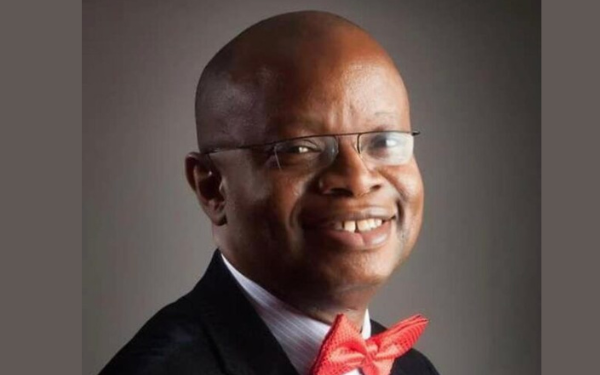NAPharm President calls for bold financing reforms to unlock Nigeria’s health value chain
The President and Chairman of the Council of the Nigeria Academy of Pharmacy (NAPharm), Lere Baale, has called for a “bold rethink” of Nigeria’s healthcare financing system to unlock opportunities across the country’s health value chain.
At the 2025 Scientific Conference and Annual General Meeting of the Healthcare Providers Association of Nigeria in Lagos on Wednesday, Mr Baale presented a paper titled “Unlocking the Value Chain in the Healthcare Sector Through Veritable Health Financing Options.”
The Professor who is the CEO of Business School Netherlands International said Nigeria must shift from seeing health as a social cost to recognising it as a productive investment capable of driving economic growth and national competitiveness.
“Nigeria’s healthcare future will not be built by chance, but by choice,” Mr Baale said.
“If we commit to veritable financing—anchored in risk pooling, transparency, and innovation—Nigeria will save lives, catalyse industries, create jobs, and build resilience.”
High out-of-pocket spending
Mr Baale noted that about 76 per cent of total health spending in Nigeria comes from out-of-pocket payments, leaving millions of families vulnerable to “catastrophic health costs.”
He emphasised that every naira invested in health could yield up to six times in economic returns through productivity, job creation, and improved human capital.
According to him, gaps in research, manufacturing, procurement, and service delivery continue to weaken access, equity, and quality of care across the health sector.
Four strategies for reform
To drive sustainable reform and unlock value across Nigeria’s healthcare ecosystem, Mr Baale outlined strategies focused on financing, innovation, and accountability.
He urged the government to significantly scale up public investment and policy reforms by increasing disbursements through the Basic Health Care Provision Fund (BHCPF) and raising public health expenditure above four per cent of GDP to stimulate performance-linked financing.
He emphasised that improved funding must translate into measurable outcomes and stronger primary health systems across the country.
He also called for the expansion of the National Health Insurance Authority (NHIA) to reach informal workers and rural populations through digital micro-insurance and community-based schemes. He cited Lagos State’s ILERA EKO programme and Rwanda’s cooperative model.
Beyond public spending, Mr Baale emphasised the need for private capital mobilisation to bridge infrastructure and service gaps. He proposed leveraging public-private partnerships, diaspora bonds, and social impact bonds to fund diagnostic infrastructure, logistics networks, and digital platforms.
On pharmaceuticals, he recommended strengthening local manufacturing and supply chains through credit guarantees, fair procurement systems, and working-capital lines. He said this will ensure medicine security and reduce stockouts.
Drawing inspiration from other African countries, Mr Baale references Ghana’s VAT-linked National Health Insurance Levy and Rwanda’s income-tiered community model, both of which achieved high coverage and sustainable financing through “coordinated governance, fiscal innovation, and accountability.”
Government push
His recommendations align with the Nigeria government’s Presidential Initiative for Unlocking the Healthcare Value Chain (PVAC), launched by President Bola Tinubu in October 2023 to boost local manufacturing of medical products and services.
The initiative, coordinated by the Federal Ministry of Health and Social Welfare, aims to transform the healthcare ecosystem by strengthening manufacturing, logistics, technology, and retail, while encouraging private-sector participation.
According to the Coordinating Minister of Health and Social Welfare, Muhammad Pate, the key goals include achieving a 70 per cent local production of pharmaceuticals and a 15 per cent pharmaceutical market share in Africa by 2030, creating 30,000 jobs.
READ ALSO: WHO reports major decline in polio cases across Africa
In 2024, Mr Pate announced that PVAC signed a Memorandum of Understanding (MoU) with the US Pharmacopeial Convention (USP). Also, recently, PVAC signed another MoU with the Healthcare Federation of Nigeria to strengthen private sector partnerships.
Collective responsibility
Mr Baale urged the government, private investors, health professionals and development partners to adopt what he called a “Not more money, but smarter money” approach.
He said this will ensure that every naira invested delivers measurable health outcomes and shared prosperity.

